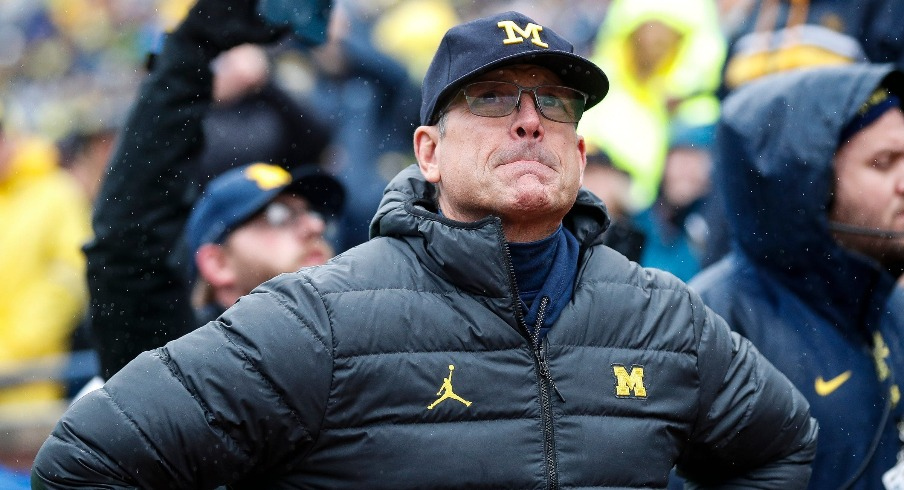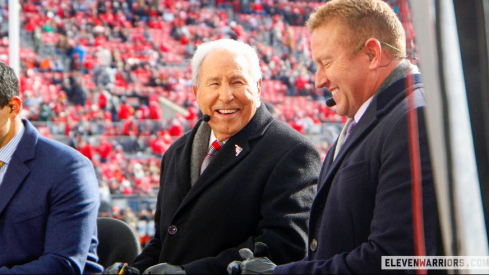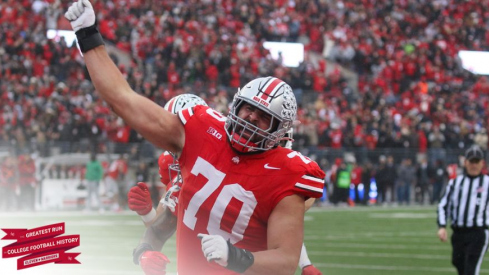Michigan may be rethinking its long-term commitment to Jim Harbaugh amid the sign-stealing investigation into the program.
According to the Wall Street Journal, the Wolverines have rescinded a contract extension they had offered to head coach Jim Harbaugh as the NCAA investigates whether Michigan broke NCAA rules by scouting opponents in person and filming opponents' signals.
The University of Michigan rescinded a contract offer that would have made Jim Harbaugh the highest-paid coach in the Big Ten in the wake of sign-stealing allegations in the football program https://t.co/rv60apg8cj
— The Wall Street Journal (@WSJ) October 29, 2023
Per the report, the deal on the table would have made Harbaugh the highest-paid coach in the Big Ten, though the exact details of the potential contract are unknown. A spokesman for the school stated that it does not comment on contracts for athletic department staff until after agreements are completed and executed.
Harbaugh denied having a contract offer rescinded on Monday, responding “I wouldn't say that's accurate” when asked about the Wall Street Journal’s report.
Harbaugh's most recent extension in early 2022 was a five-year, $36.7 million-dollar deal that made him the 12th-highest-paid coach in college football, per the USA Today coaching salary database.
The contract extension delay is the latest reported development in a string of news related to the program's alleged sign-stealing scheme coordinated by Connor Stalions. Stalions bought tickets to 30-plus Big Ten games over the past three seasons, allegedly sending various people to film opposing sidelines and obtain offensive and defensive play-call signals.
Ohio State was among many conference programs reportedly aware of the alleged operation to some extent and warned TCU of Stalions' tactics prior to the Wolverines' game College Football Playoff against the Horned Frogs on Dec. 31, 2022.
The NCAA investigation into Michigan's sign-stealing operation is ongoing, with investigators reportedly interviewing members of Michigan’s staff last week. While reports have suggested that an NCAA resolution is unlikely to come until 2024, the Big Ten could elect to penalize the program this season if it chooses, though any such punishment would have to be approved by the conference’s Joint Group Executive Committee.


